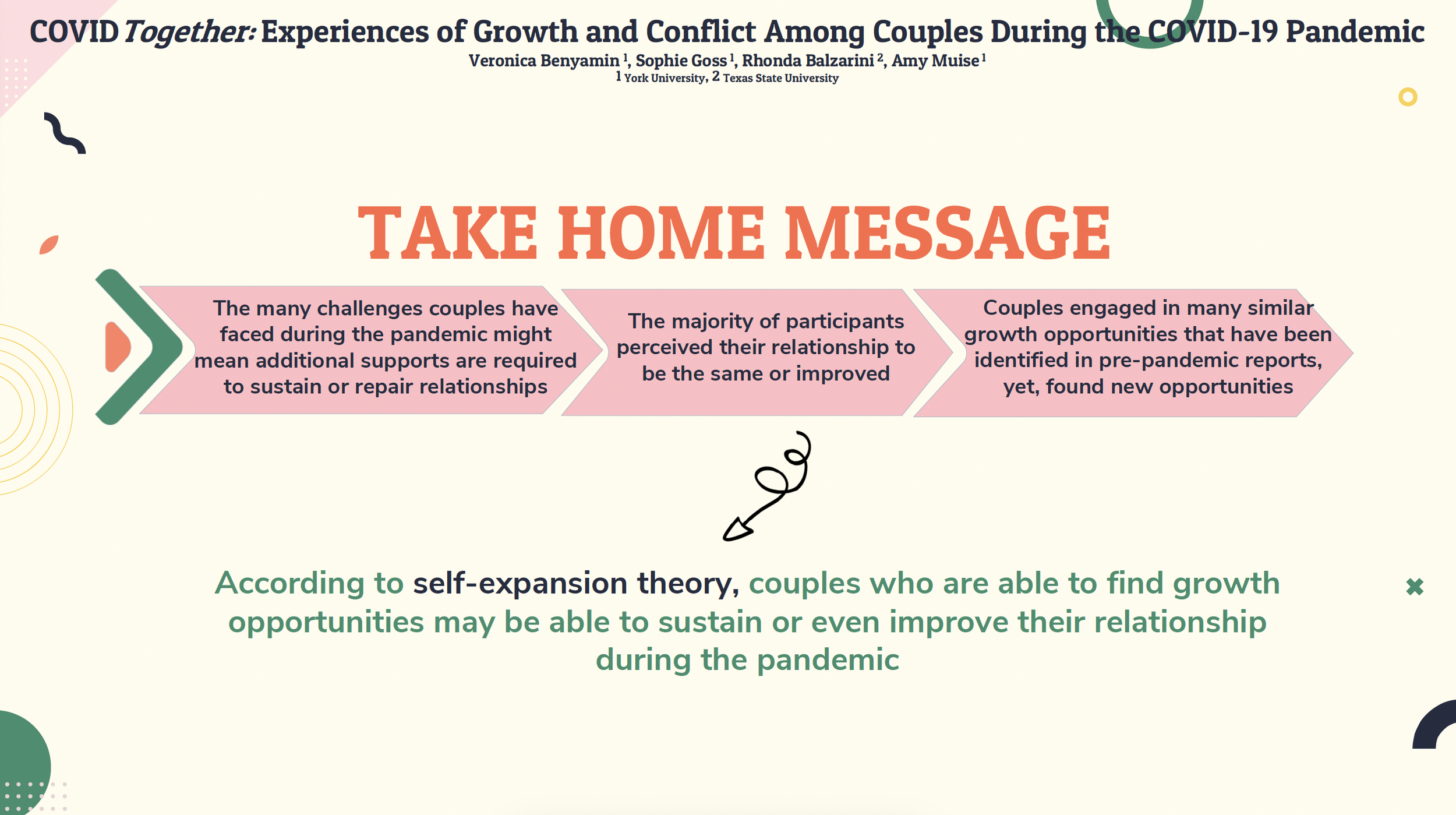COVIDTogether: Experiences of Growth and Conflict Among Couples During the COVID-19 Pandemic
Authors: Veronica Benyamin, Sophie Goss, Rhonda Balzarini, Amy Muise
Presented at The Canadian Psychological Association (CPA), York University, Texas University
Abstract
The COVID-19 pandemic is a time of stress for many couples who are working, parenting and living together. Research shows that couples who report experiencing more pandemic-related stressors also report poorer relationship quality and more frequent conflict. Yet challenging times can also present opportunities for growth. Self-expansion theory posits that through new experiences, people learn new things about their partner, which is associated with higher relationship quality. CovidTogether is a dyadic, longitudinal study of 220 couples (N = 440) living together during the COVID-19 pandemic. At the outset, both partners reported on relationship changes from before the pandemic. We found that 10% of participants perceived their relationship as less satisfying, 36% felt it was the same, and more than half (54%) felt it was more satisfying. Also, 29% reported experiencing more conflict compared to pre-pandemic, but 75% reported spending more quality time together. Each week for three weeks, partners described their experiences of conflict and growth. We coded their open-ended responses using thematic analysis with most couples reporting multiple growth and conflict experiences that were both in line with and extend themes from past research. Future work can extend these findings by investigating the factors that contribute to conflict and growth during times of stress.




